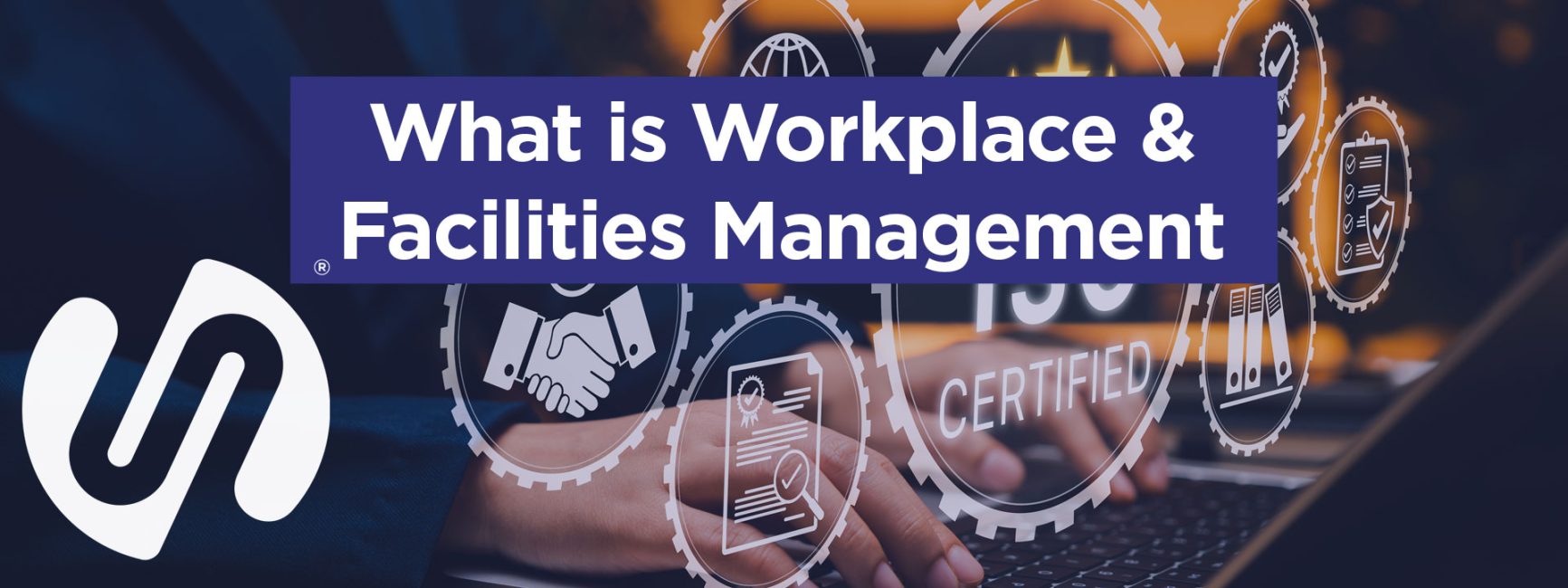What is Workplace and Facilities Management?
“Facilities management” and “workplace management” can sound like buzzwords, but they’re really about keeping buildings safe, efficient, and pleasant places to work. For small businesses in cleaning and maintenance, understanding these terms helps you see how your services fit into the bigger picture.
Facilities Management (FM)
The International Organisation for Standardisation (ISO) defines facilities management as the function that integrates people, place, and process to improve quality of life and the productivity of a business.
In practice, that means making sure a building and everything inside it works properly, is safe, and supports the people who use it.
Facilities managers oversee:
- Hard FM (the physical structure and systems): building maintenance, heating, ventilation and air conditioning (HVAC), plumbing, lighting, lifts, and energy efficiency.
- Soft FM (the services for people): cleaning, catering, security, landscaping, reception, and other day-to-day support.
They also manage budgets, health and safety compliance, risk, procurement, and sustainability initiatives. In short, FM combines maintenance, safety, and efficiency so that businesses can operate without disruption.
Workplace Management
Workplace management is a newer approach that overlaps with FM but focuses more on how space, people, and technology interact.
It includes:
- Designing and laying out office spaces
- Managing space usage and planning for future needs
- Ensuring safety, security, and comfort
- Providing the right workplace technology
- Supporting hybrid working (office and remote)
Even sole traders can benefit. For example, how you organise your van or office setup affects how efficiently you work. Larger organisations often have workplace managers to ensure staff have the right environment and resources to perform at their best.
Why It Matters
A well-managed workplace does more than just “look nice”:
- Productivity: Staff are more focused and efficient when spaces are safe, comfortable, and properly equipped.
- Employee wellbeing: A clean, well-organised environment reduces stress and makes people happier at work.
- Cost control: Avoiding wasted space or energy cuts overheads.
- Security and safety: Systems for visitor management, cleaning, and maintenance protect both people and assets.
- Adaptability: With hybrid working, businesses need to reconfigure space quickly — workplace management makes this possible.
Skills and Relevance for Cleaning Businesses
International bodies list a wide set of FM competencies: leadership, operations, finance, environmental stewardship, property management, risk management, and more. Many of these link directly to cleaning businesses:
- Operations & maintenance: Regular cleaning and upkeep is part of hard FM.
- Health & safety: Ensuring safe, hazard-free environments is a core responsibility.
- Environmental stewardship: Pure water systems and soft-wash methods reduce chemical use, supporting sustainability goals.
- Space & ergonomics: Using the right equipment for high-level or pressure cleaning helps staff work safely and efficiently, and can even guide clients on safe access.
- Risk management: Backup plans for staff absences or equipment breakdowns keep services running without interruption.
By recognising these links, cleaning companies can present themselves as professional partners in the FM ecosystem, not just contractors.
The Sustainability Imperative
Buildings are a major source of emissions: 39% of global carbon emissions come from buildings, with 28% from their ongoing operations.
That’s why sustainable facilities management focuses on cutting resource use and lowering carbon footprints. Examples include:
- Switching to LED lighting
- Upgrading HVAC systems
- Improving insulation
For cleaning companies, sustainability means:
- Using pure water systems instead of harsh chemicals
- Choosing energy-efficient equipment
- Helping clients with waste reduction and smarter resource use
Sustainability isn’t just good for the planet. It helps businesses meet ESG (environmental, social and governance) requirements, saves costs, and attracts staff, especially younger workers who value responsible employers.
Practical Steps for Small Businesses
Here are ways small firms can apply FM and workplace management thinking:
- Audit your operations: Where do you spend the most time and money? Spot bottlenecks and see if more efficient equipment or scheduling could help.
- Talk to your team: Staff often know what slows them down. Their feedback can highlight issues you’ve overlooked.
- Rethink workspace design: Whether it’s your own office, a storage area, or a client’s site, consider ergonomics and flexible layouts that make cleaning safer and quicker.
- Use smart scheduling tools: Route-planning software reduces travel time. Clients may also use desk-booking systems to coordinate cleaning with hybrid working.
- Strengthen communication: Clear communication keeps teams and clients aligned, especially when people are spread across sites.
- Push sustainability: Replace old kit with more energy-efficient alternatives, recycle where possible, and promote greener cleaning practices to clients.
Workplace and facilities management might sound technical, but it’s really about making sure buildings support the people who use them. For small cleaning businesses, understanding FM and workplace management shows clients you’re part of the bigger picture.
By focusing on maintenance, safety, and sustainability, and by linking your services to wider business goals, you not only add value to your clients but also strengthen your position as a trusted professional partner.
How Streamline supports Facilities Management companies
At Streamline, we work directly with facilities management companies to keep buildings, campuses, and public spaces looking clean.
Tailored to your site: We visit your site, listen carefully, and design vehicles that fit your exact cleaning challenges. No two facilities are the same, so neither are our solutions.
Built for the frontline: Every piece of equipment is designed around your operatives, making their work safer, quicker, and less physically demanding.
No downtime: Breakdowns cost money. That’s why we offer on-the-road repairs and hire vehicles, so your cleaning schedules continue without interruption.
Training & support: From handover to daily use, we train your staff and provide ongoing support to ensure equipment is used safely and effectively.
Trust & partnership: We deliver on promises, turn up when it matters, and grow with your business, building long-term partnerships you can rely on.
Contact us today to discuss your requirements.





